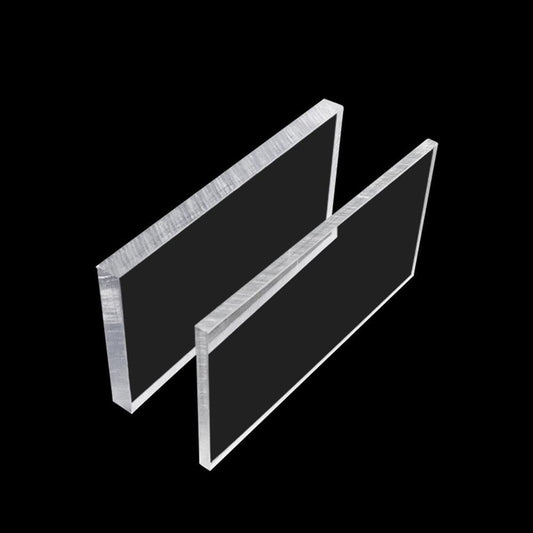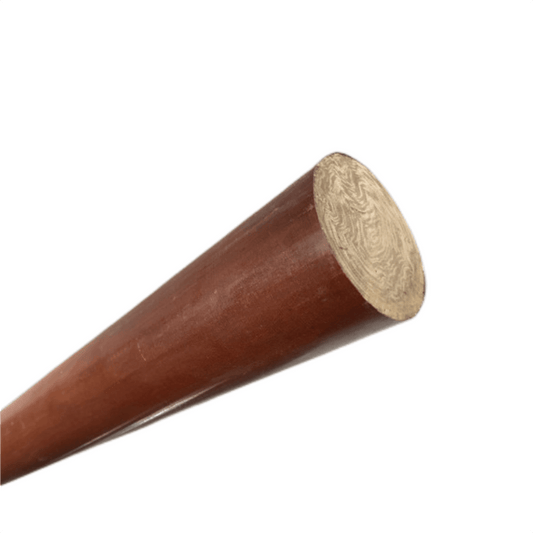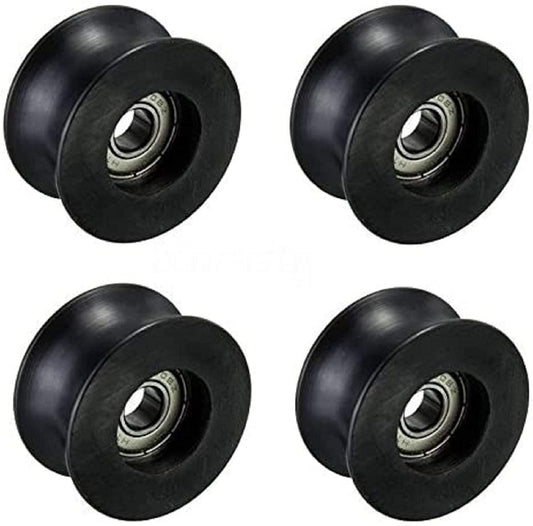Engineering plastics like PEEK (polyetheretherketone) and ABS (acrylonitrile butadiene styrene) each offer unique properties that make them suitable for different applications. When selecting the right material for your project, it's important to weigh factors like thermal and chemical resistance, mechanical performance, precision, and cost. This guide provides a detailed PEEK vs ABS comparison to help you determine which plastic is the optimal choice for your needs.

Key Differences Between PEEK and ABS Polymers
PEEK and ABS have vastly different characteristics that influence their performance and suitability for various uses. Here are some of the major factors that set these two thermoplastic materials apart:
Thermal Properties: PEEK Offers Superior Heat Resistance
One of the biggest differences between these two plastics lies in their thermal properties. PEEK has excellent high temperature resistance, maintaining its integrity in environments up to 500°F. The glass transition temperature of PEEK is around 143°C.
Comparatively, ABS plastic has a much lower melting point of approximately 212°F. The glass transition temperature of ABS is approximately 105°C.
The higher heat deflection temperature of PEEK makes it suitable for applications like aerospace components, automotive under-the-hood parts, and medical devices requiring sterilization. ABS would likely fail in these high-temperature environments over time.
Chemical Resistance: PEEK Ideal for Harsh Chemical Exposures
PEEK demonstrates outstanding chemical resistance, superior to standard and even high-performance plastics like ABS. This chemically inert material handles most common solvents, fuels, acids, and bases with minimal degradation.
ABS plastics have moderate chemical resistance at best. ABS is susceptible to damage from ketones, esters, and nitrous compounds. Applications involving caustic chemicals and fluids are better suited to PEEK plastic.

Strength Properties: PEEK Stronger and Stiffer Than ABS
The exceptional mechanical properties of PEEK make it well-suited for load-bearing parts and structures. PEEK has very high tensile strength, flexural strength, and tensile modulus. This results in low creep under load and reduced deformation.
ABS has moderate strength that falls short of PEEK’s capabilities. Although acceptable for many applications, ABS plastic cannot match PEEK’s stiffness, hardness, and ability to bear heavy loads without distortion.
Cost: PEEK More Expensive Than ABS
One major advantage of ABS is its low cost compared to performance plastics like PEEK. ABS is economical, readily available, and easy to manufacture. This makes it ideal for high-volume injection molded consumer products.
PEEK is one of the more expensive engineering thermoplastics, up to 5-10x the cost of ABS depending on grade. The high temperature stability, chemical inertness, and mechanical strength of PEEK justify the added cost for critical applications. But for low-budget projects, ABS provides sufficient properties at a fraction of the price.
Key Factors to Consider When Choosing Between PEEK and ABS
With their different thermal, chemical, and mechanical characteristics, PEEK and ABS each offer advantages for specific situations. Here are some of the most important considerations when selecting between these two plastic materials:
Temperature Requirements
What temperature range will the components experience, both in end use and during manufacturing? If temperatures exceed 212°F, PEEK’s superior heat resistance makes it the only viable choice. The thermal stability of PEEK allows it to withstand sterilization procedures and extreme environments. For lower temperature applications, inexpensive ABS can suffice.
Chemical Exposure Levels
Will the plastic parts be exposed to solvents, fuels, acids, or other harsh chemicals? PEEK’s excellent chemical resistance outperforms ABS, preventing degradation. ABS can experience stress cracking and deterioration when exposed to certain substances. If chemical inertness is critical, PEEK is the best pick.
Importance of Strength-to-Weight Ratio
Does the application require very strong yet lightweight parts? PEEK’s outstanding specific strength makes it the lighter-weight option. With exceptional tensile and flexural strength, PEEK can handle high loads without adding excess weight. ABS has moderate strength-to-weight but may fall short for demanding applications.
Precision and Complexity Required
What level of dimensional stability, precision, and part complexity is needed? PEEK allows molding of very intricate geometries while retaining tight tolerances. This makes it suitable for detailed, precise components. ABS can meet moderate requirements but has greater shrinkage and lower rigidity than PEEK.
Budget Constraints
What is the budget for the plastic parts and their associated tooling/production? ABS provides significant cost savings over PEEK, especially for high production volumes. Even glass or carbon filled PEEK grades are far more expensive. If cost is the primary driver, ABS is likely the economical choice.

Industries and Applications Where PEEK Excels Over ABS
With its unparalleled heat and chemical resistance coupled with robust mechanical properties, PEEK plastic outperforms ABS for certain critical applications, especially:
- Aerospace: PEEK's strength-to-weight ratio and extreme environment resistance make it ideal for aerospace components like impellers, nozzles, bushings, bearings, and valve plates exposed to high temperatures.
- Automotive: Under-the-hood automotive parts like fuel system components, pumps, valve bodies, and sensor housings withstand high heat and corrosive fluids. PEEK fits the bill.
- Oil and gas: Downhole drilling tools and wellhead equipment must perform reliably despite boiling fluids, abrasion, and subsurface pressures. PEEK's ideal properties suit these harsh oil and gas industry environments.
- Medical: Implants, catheter components, and diagnostic equipment subjected to repeated sterilization benefit from PEEK's biocompatibility and steam autoclave resistance.
- Semiconductor: Wafer transport rings, plasma etch components, and other fixtures used in semiconductor fabrication processes demand PEEK's combination of rigidity, chemical resistance, and thermal stability.

Applications Where ABS Performs Well
Despite its shortcomings in extreme environments, ABS remains a ubiquitous choice for more moderate applications across industries, including:
- Consumer appliances and electronics: Appliance housings, frames, bezels and other non-critical components experience minimal heat and chemical exposure, making ABS a smart choice.
- Automotive interior: Inside the cabin, ABS finds widespread use in trim components, ducts, surrounds, wheels, and dashboard elements where its aesthetics and processability excel.
- Protective equipment: ABS is commonly used in helmets for construction, recreation, and other applications where impact resistance meets basic requirements.
- Medical devices: For medical applications like casings for monitoring devices that do not require repeat sterilization, ABS provides a cost-effective solution.
- Office equipment: Printers, copiers, and other commercial and business equipment reliably employ easy-to-mold ABS for housing and structural parts away from heat sources.

Conclusion: Weigh Your Requirements When Deciding Between PEEK and ABS
For critical applications facing extreme conditions, the unmatched heat resistance, chemical inertness, and strength of PEEK outweigh its higher cost compared to ABS plastic. But for more moderate environments, ABS is often the more economical choice and provides sufficient properties.
When selecting a material, consider the factors outlined above like temperature needs, chemical exposure, precision requirements, and budgetary constraints. Matching the inherent capabilities of the plastic to your specific application ensures optimal performance and avoids unnecessary expense. Prototype testing also provides valuable insight on which material best fits your particular demands.
Knowing the major differences between PEEK vs ABS polymers allows you to confidently choose the right plastic for any project. Partnering with an experienced plastics manufacturer provides additional guidance tailoring material selection and part design to achieve success.







